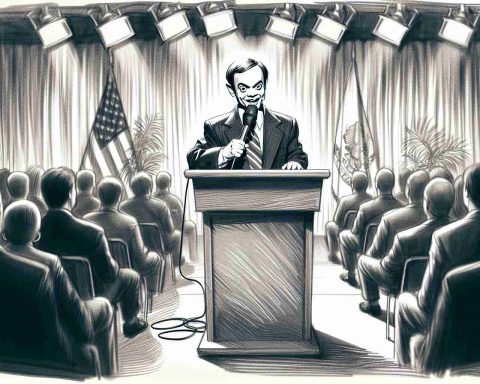France has welcomed a new prime minister following a prolonged period of political uncertainty that began with the legislative elections held in July. After these early elections, called by President Emmanuel Macron, the country’s Parliament is now fragmented into three distinct factions, creating a challenging landscape for governance.
In a decisive move, Macron has selected Michel Barnier, a veteran politician known for his previous role as a European Commissioner and as a prominent figure on the French right, to lead the government. Macron’s selection process involved extensive consultations to ensure that Barnier could navigate the political minefield that his appointment entails.
Barnier, aged 73, makes history as the oldest individual to assume the role of prime minister in the Fifth Republic, succeeding the much younger Gabriel Attal, who was only 35. With a substantial political career behind him, including serving as the EU’s chief negotiator on Brexit, Barnier’s experience is anticipated to play a crucial role in stabilizing the government.
The current political climate is marked by confrontation among the extreme right led by Marine Le Pen, Macron’s centrist party, and a unified left coalition named the New Popular Front. Given the polarized nature of the Parliament, there is a significant risk that Barnier could face immediate challenges to his leadership, as both the far-right and the left threaten to initiate motions of censure against the new government.
France Appoints New Prime Minister Amidst Political Turmoil
In a dramatic shift in the political landscape, France has appointed Michel Barnier as the new Prime Minister amidst ongoing turbulence following the recent legislative elections. With this appointment, critical questions about governance, political stability, and policy direction arise, presenting both opportunities and significant challenges for the government.
Key Questions and Answers
1. What are the immediate challenges Barnier faces?
Michel Barnier must navigate a fragmented Parliament where no single party holds a majority. This situation complicates the passage of legislation and compromises the stability of his administration. He will need to build coalitions and find common ground among the distinct factions to propose and enact policies.
2. How does Barnier’s appointment affect France’s relationship with the EU?
Known for his extensive experience in European affairs, Barnier’s leadership could enhance France’s position in EU negotiations. His insight into Brexit and transnational politics will be vital as France seeks to reinforce its influence within the EU while addressing domestic policy challenges that intersect with European regulations.
3. What are the potential responses from opposition parties?
Barnier’s government is likely to face resistance from both the far-right National Rally and the leftist New Popular Front. These parties may utilize parliamentary strategies such as motions of censure and protests to challenge and undermine his administration’s initiatives, setting the stage for a combative political environment.
Key Challenges and Controversies
– Polarization in Politics: The deep partisan divisions in Parliament necessitate bargaining and compromise, which may slow down the legislative process. Barnier’s ability to unite diverse political interests will be pivotal in ensuring effective governance.
– Public Sentiment: Public opinion has shifted dramatically amidst economic struggles and social issues, which may affect the government’s ability to enact reforms. Barnier must also address public concerns over cost of living, employment, and social inequalities which could fuel opposition sentiments.
– Policy Direction: The choice of policies to prioritize will be contentious. Barnier needs to balance the expectations of Macron’s centrist agenda with the demands of competing factions, making it important to define clear objectives while maintaining broad support.
Advantages and Disadvantages
Advantages:
– Barnier’s extensive political and diplomatic experience may facilitate stronger governance.
– His history in negotiations can foster better relationships with EU leaders, potentially benefiting France economically.
– His age and experience may instill a sense of stability during uncertain times.
Disadvantages:
– His age may raise questions about his capacity to adapt to rapid political changes or youth-driven trends.
– The fragmented parliament may render coalition-building efforts futile, leading to legislative gridlock.
– His associations with the traditional right could alienate progressive voters and complicate alliances.
As Michel Barnier steps into his new role, the days ahead will reveal the resilience and adaptability of the French government in navigating its multifaceted challenges. Political analysts and citizens alike will be keenly observing how this veteran leader confronts the complexities of contemporary French politics.
For more insights on France’s political landscape, visit Le Monde and The Local.












